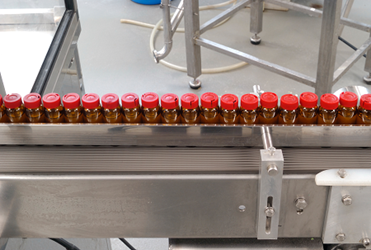Assessing And Navigating Testing For Parenteral Packaging And Delivery Systems: Container Closure Integrity
By Jennifer Riter

Container Closure Integrity (CCI) is a key area that needs to be evaluated in the development phase of drug products. CCI is defined as the ability of a package to prevent product loss, to block the ingress of microorganisms, and to limit entry of detrimental gases or other substances over the shelf life – ensuring that the drug product meets all necessary safety and quality standards. This terminology is synonymous with package integrity. CCI failures for packaging and delivery systems include leakage, loss of product, increased concentration of product, contamination, sterility failure, critical headspace loss, over-pressurization, or loss of pressure. USP also has a chapter that addresses CCI. USP <1207> Package Integrity Evaluation – Sterile Products provides guidance on how to evaluate integrity of packaging intended for sterile products. It includes an overview, general introduction, and glossary; and then is divided into several sections. It also addresses the need for understanding of package system integrity throughout the life cycle of the drug product – from package development and validation to product manufacturing, and then through commercial stability.
This first section of the chapter discusses test methods selection and validation. It also states that to choose appropriate test methods, there is a need to understand the package design, materials of construction, and mechanics. As part of that understanding, a pharmaceutical manufacturer must also understand and define the Maximum Allowable Leakage Limit (MALL) for their product to properly evaluate the package integrity of their product. Package integrity is defined in terms of the MALL, and this is to be determined for each product package system. The USP defines MALL as the greatest leakage rate (or leak size) tolerable for a given product package that poses no risk to product safety and quality. Integrity requirements should not just be focused only on sterility risks from microbiological contamination, but also product quality risks. Once MALL is defined for a product, the next step is choosing the appropriate technique for testing CCI. This is addressed in the second section of the chapter, which outlines leak test methods and their proper use.
The second section of the chapter discusses different types of probabilistic methods, such as blue dye testing and microbial challenge, which were very common to the industry in the past. However, as outlined in this section, expectations have since changed and deterministic methods should be utilized when possible. Examples of deterministic methods include tracer gas, high voltage leak detection, vacuum decay and laser-based headspace analysis.
In the third and final section, there is discussion of package seal quality test methods, such as residual seal force. Package seal quality tests are used to characterize and monitor the quality and consistency of parameters related to the package seal. These provide some assurance of the package’s ability to maintain integrity. Seal quality tests and CCI tests work together to ensure package integrity.
When considering techniques, it is important to understand that there is no one test method that is appropriate for all product package systems. Method selection and validation should be based on what is best suited for the application, and the methods should target quantitative results (deterministic methods) versus qualitative results (probabilistic methods). Finally, it is important to consider CCI during development and include it as part of stability evaluation over the shelf life of the product, and through life cycle management of the product.
1Package Integrity Evaluation – Sterile Products USP General Chapter <1207>
Need More Information? Just Ask.
Click the button below to directly contact the supplier. Use it to:
- Ask a question.
- Request more detailed information or literature.
- Discuss your current project/application.
- Request a quote.
- Locate a distributor in your area.
- Schedule a demo.
